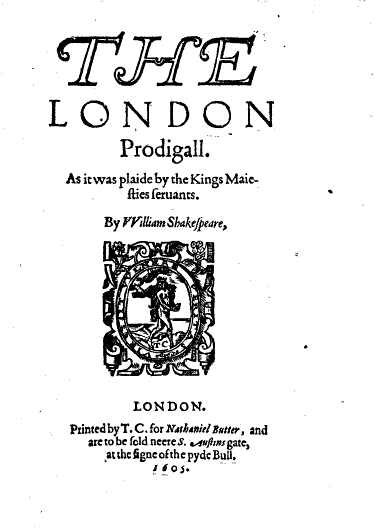 Friday 5th February, 1-2pm (GR06/07) ‘Let me honour your repentance’: Financial Excess and Repentance in Early Modern Drama Ezra Horbury
Friday 5th February, 1-2pm (GR06/07) ‘Let me honour your repentance’: Financial Excess and Repentance in Early Modern Drama Ezra Horbury
The early modern prodigal, who finds his ancestor in Luke 15.11-32, is a character marked by excessive expenditure, rebellion, and riot. Most often a youth and almost exclusively male, the prodigal is one of the most popular archetypes in early modern drama. This type appears across scores of plays, such as Quicksilver of Eastward Ho, Young Lionel of The English Traveller, Bassanio of The Merchant of Venice, and both Hal and Falstaff of the Henry IVs. Prodigals were troubling, timely figures that variably reinforced and subverted a range of early modern mores. This lecture examines examples of the archetype at the height of its popularity in the work of Shakespeare and his contemporaries in order to provide students with a preliminary but concrete understanding of prodigals, prodigality, and the social anxieties with which these characters engage.
While prodigal excess is frequently represented as socially disruptive, these plays also demonstrate that it cannot be unproblematically condemned. Excessive trespasses must be forgiven and the prodigal redeemed to restore social order, but distrust concerning the predictable nature of repentance besets these depictions of Christian closure. This lecture also explores the uneasiness present in Calvinist understandings of repentance and opens lines of inquiry for those who wish to interrogate early modern repentance on a broader level.
This lecture will also be of especial interest to those who wish to learn more about dynamics of authority and rebellion in the family, the morality of excess and moderation, and Calvinist thought in early modern drama and culture.
This lecture will be relevant to Part I students taking ‘Paper 4: English Literature and its Contexts, 1500-1700’ and ‘Paper 5: Shakespeare’. For Part II students, it will be relevant to ‘Paper 7: Early Modern Drama 1588-1642’. It may also be of interest to students taking ‘Paper 17: Shakespeare in Performance’.



